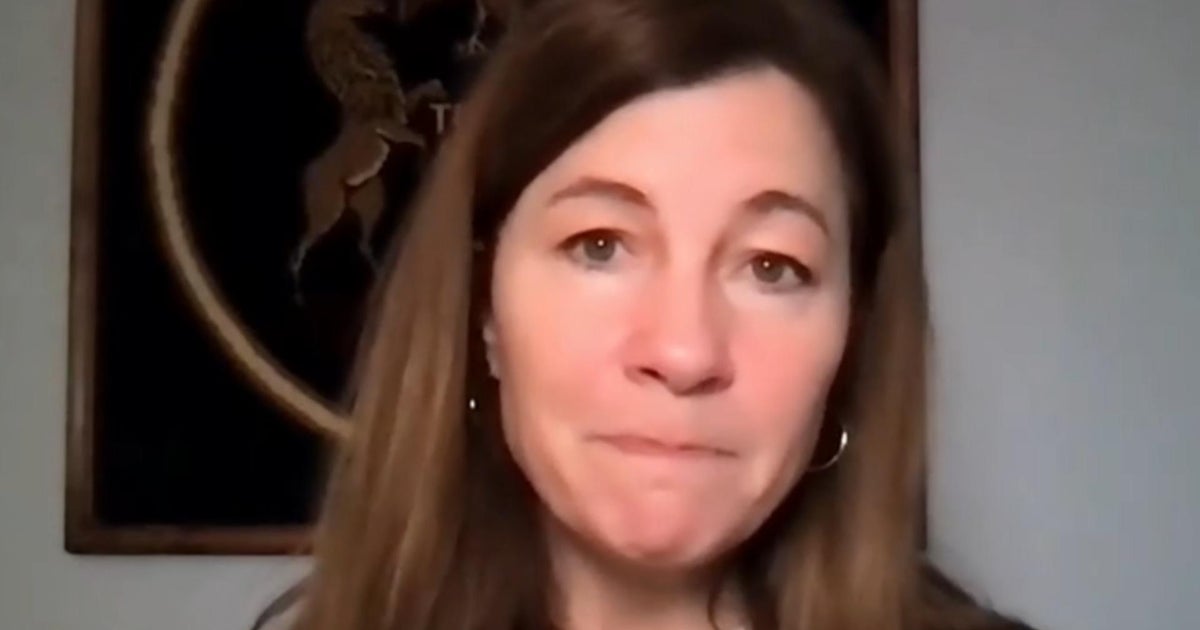CBS News
TGI Fridays files for bankruptcy, as sit-down chain restaurants face broad challenges

Restaurant chain TGI Fridays filed for bankruptcy protection Saturday, saying it is looking for ways to “ensure the long-term viability” of the casual dining brand after closing many of its branches this year.
The Dallas-based company filed for Chapter 11 bankruptcy protection in a Texas federal court.
TGI Fridays Executive Chairman Rohit Manocha in a statement said the “primary driver of our financial challenges resulted from COVID-19 and our capital structure.”
Sit-down chain restaurants have more broadly faced challenges in recent years as diners choose to get food delivered or visit upscale fast food chains like Chipotle and Shake Shack.
A U.S. bankruptcy judge in September approved a reorganization plan for seafood chain Red Lobster after years of mounting losses and dwindling customers.
Founded in 1965, the popularity of TGI Fridays peaked in 2008 with 601 restaurants in the U.S. and a $2 billion business, according to Kevin Schimpf, director of industry research at Technomic. Its sales in the U.S. were $728 million in 2023, down 15% from the prior year, according to Technomic.
It now counts 163 restaurants in the U.S., down from 269 last year. It closed 36 in January and dozens more in the past week.
TGI Fridays Inc. said it only owns and operates 39 restaurants in the U.S., which is just a fraction of the 461 TGI Friday-branded restaurants around the world. A separate entity, TGI Fridays Franchisor, owns the intellectual property and has franchised the brand to 56 independent owners in 41 countries. Those remain open.
CBS News
Is it ever OK to ignore credit card debt collectors?

Getty Images
With credit card interest rates sitting at historically high levels right now, millions of cardholders are struggling to pay off what they owe. After all, as the compounding interest charges rack up, it’s easy for even a small card balance to balloon quickly. As a result, about 9% of cardholders are now delinquent on their credit card payments, meaning that they’re facing late fees, increased interest rates and other repercussions.
If a credit card balance goes unpaid for an extended period, the card issuer may deem it uncollectible. At this stage, the debt is typically sold to a debt collection agency, which purchases it for a fraction of the original balance. This agency then becomes responsible for attempting to recover the debt by using tactics like frequent calls, letters and even legal action. These aggressive and persistent tactics can add a significant amount of stress to an already tough situation.
For many people, facing debt collectors feels intimidating, which can lead to them ignoring their attempts to collect, hoping the issue might disappear. But is ignoring a debt collector a good idea, or could it make matters worse?
Take action and tackle your credit card debt today.
Is it ever OK to ignore credit card debt collectors?
Ignoring credit card debt collectors is generally not a good idea. Debt collectors have a legal right to try to recover the debt, and ignoring their calls and letters doesn’t make the debt go away. It often leads to even more aggressive collection efforts, including lawsuits, which could result in a court judgment against you. This judgment can allow collectors to garnish your wages or seize other assets, creating even more financial pressure.
However, there are a few scenarios where you might consider holding off on engaging a debt collector or taking a different approach to protect yourself. For example, one situation where ignoring a debt collector could be strategically beneficial is when the debt is “time-barred.” Each state has a statute of limitations on debt collection, typically ranging from three to 10 years, though it can be longer in some states.
If a credit card debt is past this time frame, collectors can no longer sue you to collect it. However, if you acknowledge the debt, promise to pay or even make a partial payment, you may restart the clock on the statute of limitations, allowing them to pursue legal action again. If you suspect a debt is time-barred, it’s wise to confirm your state’s statute of limitations period and carefully assess your options before engaging with a collector.
If you believe a debt is incorrect or doesn’t belong to you, it’s also important to validate it before responding. In some cases, debt collectors will pursue debts that are inaccurate, double-counted or outdated. In these cases, you have the right to request written verification within 30 days of their initial contact. Requesting verification can help you confirm whether the debt is legitimate, but ignoring a debt you don’t recognize can lead to ongoing collection efforts.
Under the Fair Debt Collection Practices Act (FDCPA), you also have the right to limit when and how a collector contacts you. You can send a letter requesting that the collector only communicate in writing or stop contacting you entirely. Be aware, though, that this won’t erase the debt. However, it can give you some breathing room and help you focus on finding a solution.
Start comparing your debt relief options here.
How to deal with credit card debt that’s in collections
If your credit card debt is in collections, you have several options to help you resolve it. First, consider negotiating with the debt collector, either on your own or by enrolling in a debt forgiveness program. After all, many collections agencies are open to settling debts for less than the full amount owed, especially if they acquired the debt for a lower price, so taking this approach could result in serious savings.
Other types of debt relief programs may also be worth considering. Debt consolidation programs, for example, can help you combine your debts into a single monthly payment, often at a lower interest rate. A debt management plan is another option, and enrolling in one could help you secure lower monthly payments by negotiating reduced interest rates with your creditors.
Another strategy for handling debt is filing for bankruptcy, which can sometimes provide relief from overwhelming debt — but it also comes with long-term consequences for your credit. As a result, bankruptcy should generally be considered a last resort, but if your debts are too high to pay off, it could be an option to weigh.
The bottom line
While the temptation to ignore credit card debt collectors is understandable, doing so rarely solves the problem. Ignoring debt collectors can lead to escalating issues, including potential lawsuits or further damage to your credit. In some cases, such as with time-barred debts, non-engagement might make sense to avoid accidentally reviving a collector’s legal claim. However, managing debt through negotiation, debt relief programs or other options is typically a more effective long-term solution.
CBS News
House candidate Kristen McDonald Rivet on race for seat in Michigan

Watch CBS News
Be the first to know
Get browser notifications for breaking news, live events, and exclusive reporting.
CBS News
Remembering Quincy Jones’ legacy – CBS News

Watch CBS News
Be the first to know
Get browser notifications for breaking news, live events, and exclusive reporting.








